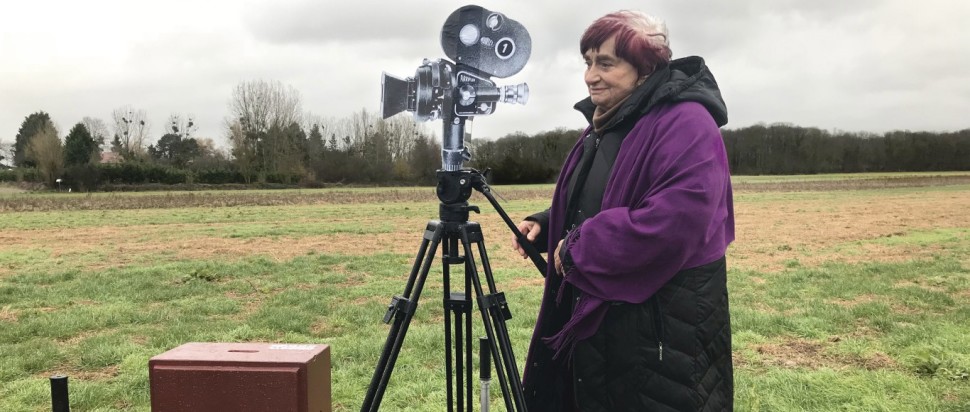Au revoir, Agnès: EIFF's Agnès Varda retrospective
Edinburgh International Film Festival says goodbye to the great French filmmaker Agnès Varda with a season of her films, including her swansong Varda by Agnès, released only a few months before her death
“I tried to be a joyful feminist, but I was very angry,” says Agnès Varda, the mother of the French New Wave, in her film The Beaches of Agnès (2008). In the film, she goes on to reflect on the joy and anger of her long life and career as one of the most influential filmmakers of the 20th and 21st centuries. Because, despite her much-quoted line, Varda was as full of joy as she was of anger, and both were as essential for her filmmaking as each other. The empathy that arose from her lust for life was what made her filmmaking political, as much as her anger at the injustice she saw around her.
In this way, Varda’s filmography epitomises second-wave feminism’s mantra “the personal is political,” reflected in her fictional films of that time. Cléo From 5 to 7 (1962) is a portrait of a woman in motion, walking and watching the city with a female gaze, while One Sings, the Other Doesn’t (1977) explores two women on parallel journeys, both restricted by the societal paths they can follow. Varda’s feminism also had a global reach with a 1968 documentary about the Black Panther civil rights movement in the US. Grand political movements were as much her realm as stories of quiet lives just about getting by.
Varda was a prolific filmmaker, consistently working until her death at the age of 90 earlier this year. She was one of the few old school directors to embrace digital filmmaking, as well as social media (her charming Instagram account is as much part of Varda’s legacy as her filmography). While Varda was always a documentarian – she began her career as a photographer – towards the end of her life, more and more frequently, she turned the lens back on to herself.
In The Beaches of Agnès, she creates a portrait of her life made up of fragmented memories, a collection of her past and present selves. Her swan song, Varda by Agnès (2019), meanwhile, reflects on her filmography and her life, giving us her interpretations of her films, their contexts and meanings, cut with clips of her giving an actual lecture in 2017. It's a rare example of a female filmmaker cementing her own auteur legacy during her lifetime.
But as much as Varda interrogated her own identity and past, she also remained outward-looking. In her Oscar-nominated Faces Places (2017), made with street photographer JR, Varda journeys around rural France, meeting new faces, as she says, to not “fall down the holes in my memory.” Her fascination with landscape also manifested in The Gleaners and I (2010), a documentary about foragers in rural France. At the 2003 Venice Biennale, in a true-to-form maverick Varda-esque move, she presented an art installation on potatoes while dressed in a potato costume.
Whether a transient wanderer in Vagabond (1985), a flâneuserie in Cléo From 5 to 7 or a potato forager in The Gleaners and I, Varda’s magic was in her ability to capture people in their environments, working diligently while Varda and her audience quietly look on. Too deeply invested in her subjects to be a voyeur, Varda with her camera was much more an empathetic guardian angel rooting for her female protagonists.
Labelled an artist, feminist, punk, maverick, filmmaker, portraitist, leader of the French New Wave and an influence for generations of filmmakers following in her steps, Agnès Varda was – like her films remain – big and small, playful and serious, private and public, political and personal, and always full of righteous joy and anger.
The Features of Agnès Varda screening in EIFF's retrospective:
Varda by Agnès – 22&25 Jun
Cléo from 5 to 7 – 24 Jun, Odeon, 1.20pm
One Sings, the Other Doesn't – 25 Jun, Odeon, 1.20pm
Vagabond – 26 Jun, Odeon, 1.20pm
Jacquot de Nantes – 27 Jun, Odeon, 1.20pm
The Beaches of Agnès – 28 Jun, Odeon, 1.20pm
